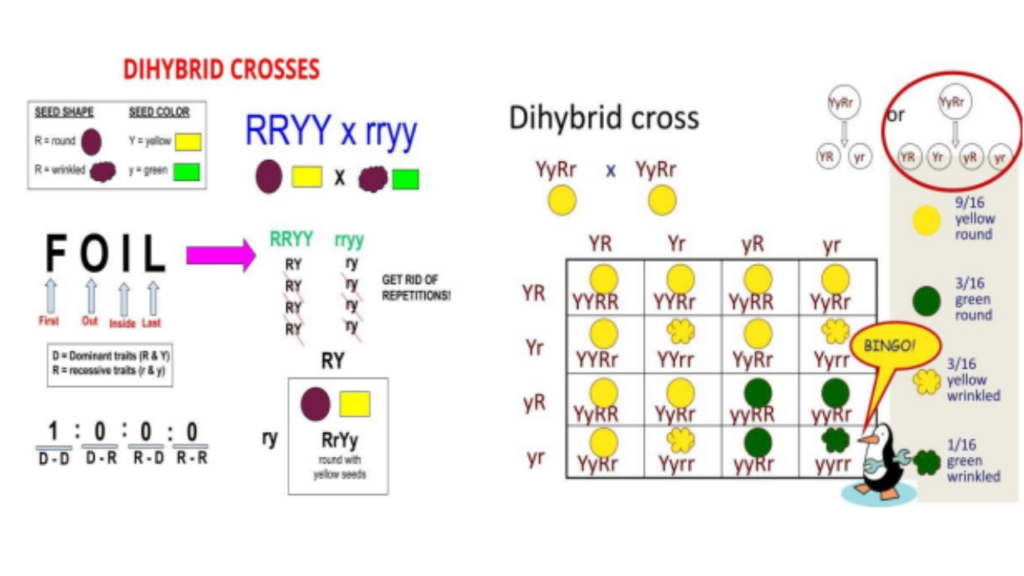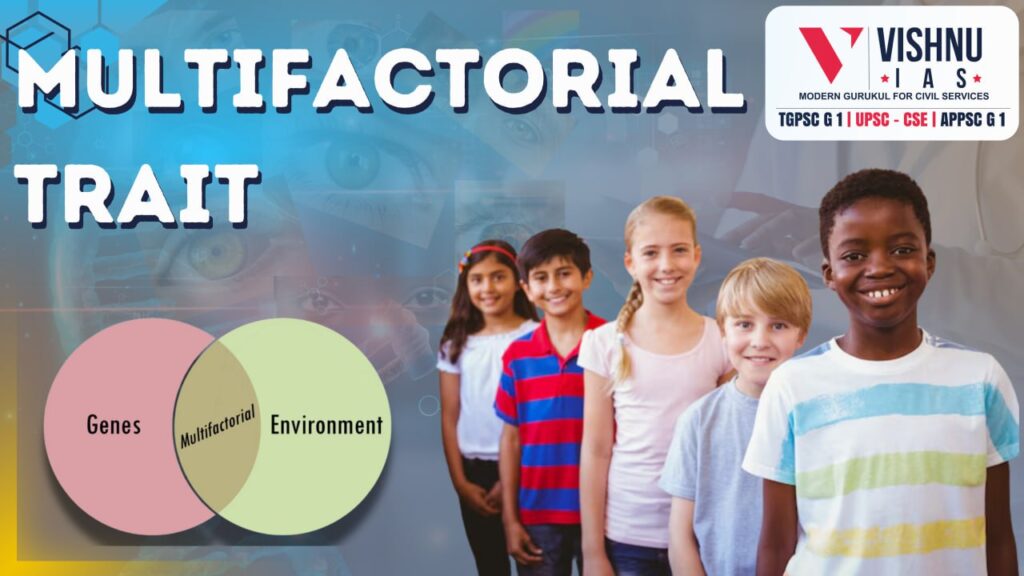Multifactorial Traits
Mendelian Inheritance and Genetics
- Introduction: Meaning of multifactorial trait
- Body: add comprehensive analysis of Mendelian genetics in man-family study in multifactorial trait with suitable human examples with its implications among the human population
- Conclusion: add its contemporary relevance.
INTRODUCTION
- Mendelian genetics and multifactorial traits represent two fundamental aspects of genetic inheritance. While Mendelian genetics focuses on traits determined by single genes, multifactorial traits involve the interaction of multiple genes and environmental factors. Understanding these concepts through family studies provides valuable insights into human genetics and its implications for the population.
- Multifactorial traits are influenced by multiple genes (polygenic inheritance) and environmental factors. Unlike single-gene Mendelian traits, multifactorial traits exhibit a more complex inheritance pattern.
BODY
Mendelian Genetics in Man-Family Study
Mendelian genetics is based on the principles established by Gregor Mendel, which include the laws of segregation, independent assortment, and dominance. These principles help trace the inheritance patterns of single-gene traits within families.
Key Concepts
- Law of Segregation:
- Each individual has two alleles for each gene, one inherited from each parent. These alleles segregate during gamete formation, ensuring that each gamete carries only one allele for each gene.
- Law of Independent Assortment:
- Genes for different traits assort independently of one another during gamete formation, leading to various combinations of traits in the offspring.
- Law of Dominance:
- In a pair of alleles, one may be dominant and mask the expression of the other, which is recessive.
Applications in Family Studies
- Tracing Inheritance Patterns:
- Pedigree Analysis: By constructing pedigrees, geneticists can trace the inheritance of traits and identify whether they follow Mendelian patterns (e.g., autosomal dominant, autosomal recessive, X-linked).
- Example: Haemophilia, an X-linked recessive disorder, can be traced through family pedigrees to determine carriers and affected individuals
- Identifying Carriers:
- Family studies help identify carriers of recessive genetic disorders, which is crucial for genetic counselling and family planning
- Example: In cystic fibrosis, a recessive disorder, family studies can identify carriers who may pass the gene to their offspring
Multifactor Inheritance
- Humans exhibit more complex inheritance patterns:
- Multiple Alleles: Many genes have more than two alleles (e.g., ABO blood groups).
- Co-Dominance: Both alleles are expressed (e.g., AB blood type).
- Polygenic Traits:Multiple genes contribute to a single trait (e.g., height, skin colour).
Experimental Method and Implications
- Mendel used statistical analysis of large plant populations to identify genetic traits.
- Hereditary Diseases: Mendelian disorders (e.g., cystic fibrosis, sickle cell anaemia) occur due to single-gene mutations.
- Human Variation: While some traits follow Mendelian patterns, others involve multiple genes or environmental factors.

Multifactorial Traits
Multifactorial traits are influenced by multiple genes (polygenic inheritance) and environmental factors. Unlike single-gene Mendelian traits, multifactorial traits exhibit a more complex inheritance pattern.
Examples of Multifactorial Traits
- Height:
- Genetic Factors: Multiple genes contribute to height, each having a small additive effect.
- Environmental Factors: Nutrition, health during childhood, and overall lifestyle significantly influence height.
- Heart Disease:
- Genetic Factors: Several genes affect cholesterol levels, blood pressure, and other cardiovascular functions.
- Environmental Factors: Diet, physical activity, smoking, and stress levels play crucial roles in the development of heart disease.
- Diabetes:
- Genetic Factors: Type 2 diabetes is influenced by multiple genes that affect insulin production and glucose metabolism.
- Environmental Factors: Lifestyle factors such as diet, physical activity, and body weight significantly impact the risk of developing diabetes
Implications Among the Human Population
- Genetic Counselling:
- Understanding both Mendelian and multifactorial traits is essential for genetic counselling. It helps individuals and families make informed decisions about health, reproduction, and disease management
- Public Health:
- Knowledge of multifactorial traits can inform public health strategies aimed at preventing and managing common diseases like heart disease and diabetes. This includes promoting healthy lifestyles and early interventions
- Personalized Medicine:
- Advances in genetics allow for personalized medicine approaches, where treatments and preventive measures are tailored to an individual’s genetic makeup and environmental exposures
- Research and Development:
- Studying the genetic basis of multifactorial traits can lead to the discovery of new therapeutic targets and the development of more effective treatments for complex diseases.
CONCLUSION
Mendelian genetics and multifactorial traits provide complementary insights into human inheritance. Family studies are crucial for understanding the genetic basis of both single-gene and complex traits, with significant implications for genetic counselling, public health, personalized medicine, and research. By integrating these approaches, we can better understand and address the genetic and environmental factors that shape human health and disease.
Anthropology Full Course at Vishnu IAS Academy
What does Course Offer?
- 4 Months (250+ Class Hours)
- Online (App + Web) / Offline / Hybrid Mode of Classes
- Live + Recorded Videos Access For 1 Year
- 2 Hour Live Class From Monday to Saturday (1.5 Hours for Class + ½ Hour for Doubt Solving)
- Foundation to Advanced Level of Teaching
- Simple and Integrated Content
- One Stop Solution Books
- Regular Value Added Content
- Current Affairs & Case Studies Modules
- Daily Answer Writing Practice
- Weekly Grand Tests On Sundays & Evaluation With Guidance and Topper Will be Rewarded
- 500+ Model Answers
- 9 AM – 9 PM Support System
- Free GS Current Affairs
- Free Interview Guidance for Anthropology


